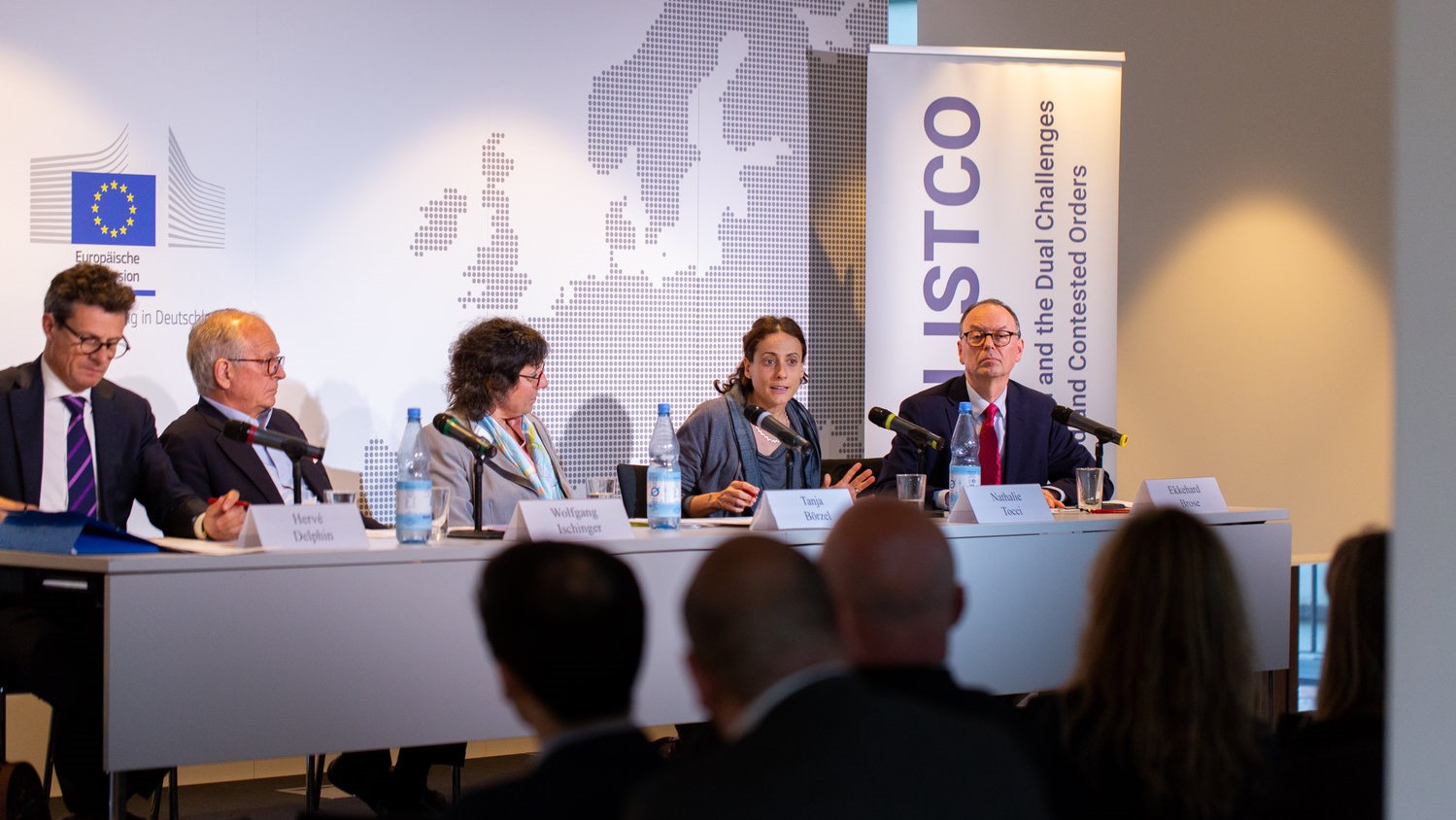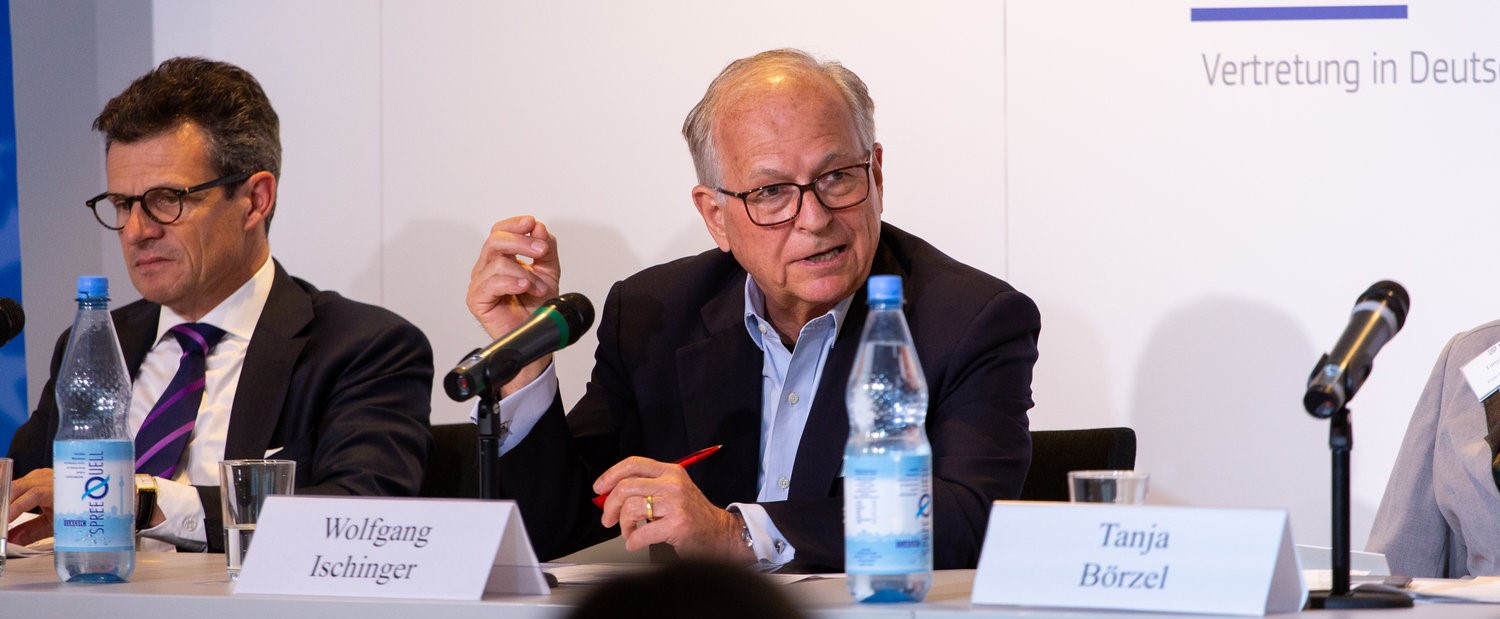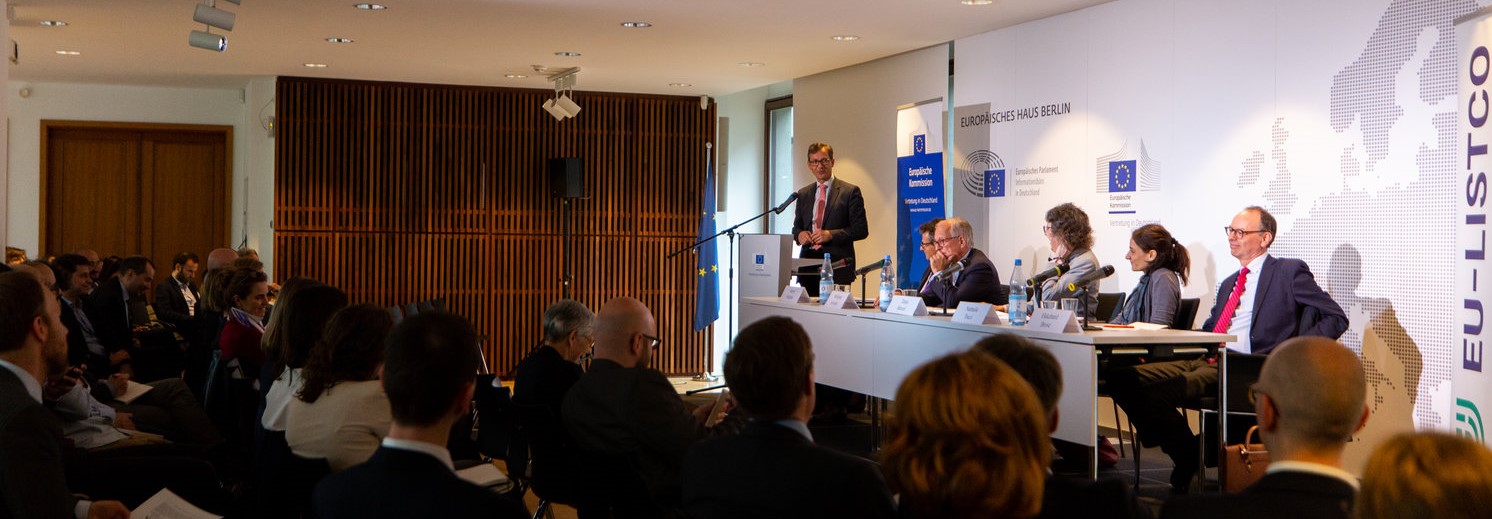
- This event has passed.
Ring of Friends or Ring of Fire? Instability and Autocracy in the EU’s Neighbourhood
April 26, 2018 | 6:30 pm - 8:30 pm

Hosted by the European Commission’s representation in Germany, the event addressed the current challenges of contested orders and limited statehood in the EU’s immediate neighbourhood and the EU’s preparedness to deal with them.
AUDIO OF THE EVENT
The discussion started with the following question to the panellists: Which are the three most pertinent challenges the EU and its member states are facing at the moment in their neighbourhood?
Ekkehard Brose commented that these challenges are (1) the new power centres (Iran, Turkey, Russia, China) in the EU’s surroundings, (2) the fragility of many states in the MENA region accompanied with increased violence and growing flows of migration, and (3) the decreasing trust in established elites in Europe and a weakening support for the liberal post-war order. Hervé Delphin considered the most pressing challenges to be (1) the deteriorating development in the MENA region in terms of human development index which inevitably leads to informal economies and migration, (2) the increasing tension between Russia and the United States, and (3) conflicts in the Middle East involving Iran, Israel, and Saudi Arabia.

Wolfgang Ischinger named hybrid threats and crises in the Middle East, such as the conflict in Syria, the primary challenges for Europe, but also noted that two internal affairs are impeding the EU’s responsiveness to foreign policy challenges: the low visibility of the EU’s foreign policy activities to its citizens and the use of veto power in the Council. Natalie Tocci remarked that the hollowing out of the state in the Eastern, but mostly the Southern neighbourhood – breakdowns into violent conflict, problems associated with changing demography, the dependence of the rental state on oil – is the largest challenge in the EU’s surrounding, as are contested orders and proxy wars in the region. Finally, the EU itself and the growing fascination with the ‘strong man’ has become a problem for the EU’s foreign policy capacity.
With audience involvement, the panellists discussed how well the EU and the member states are prepared to face these challenges. The panellists agreed that the EU is part of the answer to these challenges. In particular, Nathalie Tocci commented that the EU member states need to internalise that their individual powers are rather limited, and the EU institutions need to be recognised as the more promising avenue to solving conflicts in the EU’s neighbourhood.

It has also been noted that the EU needs to prioritise in its foreign policy agenda and develop clearly formulated interests. Many agreed that the EU has a strong security responsibility in its surroundings. The question was raised how short-term military solutions can be discouraged in favour of long-term approaches to security in the EU’s neighbourhood. At the same time, a participant from the audience voiced the concern that the public needs to be informed that military force may be required in some cases, and the EU needs to step up its security engagements accordingly. It remains rather unclear who should communicate this message.

Speakers
Ekkehard Brose, Special Envoy for Crisis Prevention and Stabilization, German Foreign Office
Hervé Delphin, Head of the Strategic Planning Division, EU External Action Service
Wolfgang Ischinger, Chair of the Munich Security Conference
Natalie Tocci, Director of Istituto Affari Internazionali and Special Advisor to the EU High Representative Federica Mogherini
Moderator
Tanja A. Börzel, EU-LISTCO’s coordinator and director of the Center for European Integration, Freie Universitaet.